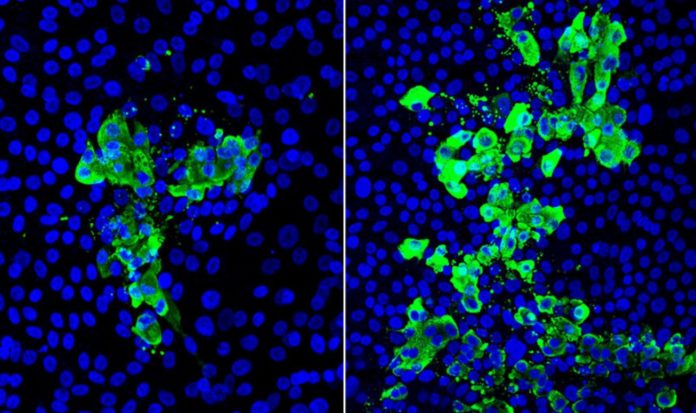This work will help researchers better understand the risks of coronavirus infection for smokers.
Researchers at the University of California, Los Angeles were able to demonstrate how smoking contributes to the more severe course of Covid-19. To do this, they used a model of airway tissue created from human stem cells. An article about the work was published in the Cell Stem Cell edition.
Cigarette smoking is one of the most common causes of pulmonary disease, including cancer and chronic obstructive pulmonary disease. Most large-scale studies of patients with Covid-19 have shown that active smokers have a much higher risk of severe coronavirus infection and death from it. But the reasons for this are not entirely clear to specialists.
To clarify the issue, the authors of this new study decided to recreate the processes that occur when a smoker’s airways are infected with the SARS-CoV-2 virus. “Our model mimics the upper airway, which is the first place for the virus to enter,” says lead author Bridget Gomperts. “It produces mucus to trap viruses, bacteria and toxins.”
The model tissues were grown from respiratory tract stem cells taken from the lungs of five young, healthy, nonsmoking donors. To replicate the negative effects of smoking, the researchers treated these cell cultures with cigarette smoke daily for four days. The duration of one exposure session was three minutes.
The scientists then infected tissues exposed to cigarette smoke with the living SARS-CoV-2 coronavirus, along with identical cell cultures that were not negatively affected. In models that were exposed to smoke, the researchers observed two to three times as many infected cells.
The authors of the study concluded that smoking led to a more severe course of Covid-19, at least in part, due to blocking interferons. These proteins play a critical role in the body’s early immune response, forcing infected cells to produce antiviral proteins and “warning” uninfected cells of the appearance of a pathogen in the body.
The new work will help researchers better understand the risks of coronavirus infection for smokers. It can also provide useful information for the development of new therapeutic strategies that reduce the likelihood of severe respiratory illness in smokers.
